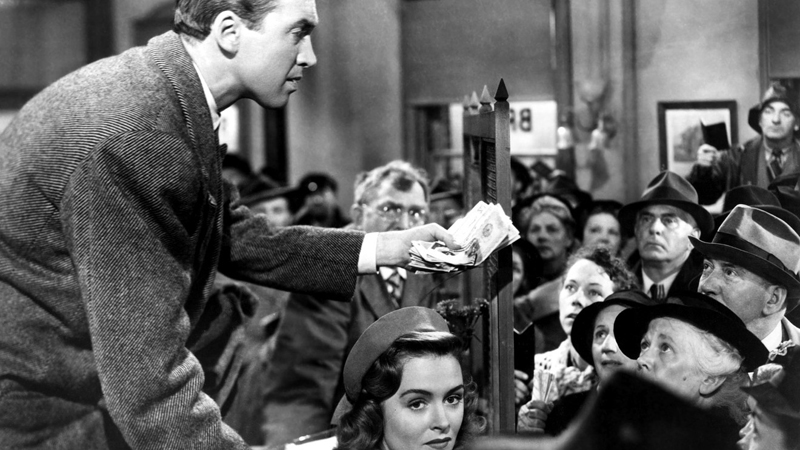
After an unbelievable run-up, the stock price of cinema circuit AMC Entertainment is in free fall, as the flood of small investors calling themselves apes evaporates. From a high surpassing $55 a share last year, AMC closed at $14.52 a share today.
With the air out of the balloon, professional investors expect AMC’s stock price to settle under $10/share because of its heavy debt load. The largest U.S. circuit by screen count, the company’s financial state is precarious, despite issuing occasionally bullish AMC corporate press releases when boxoffice pops on a good weekends. The pandemic — extended by the covid variant Omicron that is very contagious — continues to depress the cinema-going business.
AMC shares traded at $2-5 a share in 2020 just before small investors pumped up its share price, doing the same with video game retailer GameStop and a few others.

When riding high, AMC chairman/CEO Adam Arons shrewdly issued more stock. That and other financial maneuvers enabled by its soaring share price let AMC bag $2 billion in new capital or debt savings last year. But AMC debt stands at a heavy $5.5 billion as of September, mostly with high interest rates, meaning it is expensive to service.
Much of that debt was assumed when AMC was bought in 2012 by a Chinese company Dalian Wanda, which smartly cashed out at a rich price in $3 billion when the share price was elevated last year. Amazingly, that yielded an indicated profit of several hundred million dollars compared with the original purchase price in 2012. Also last year, AMC boss Arons sold more than $40 million (since November) of his own personal AMC stock, which he attributed to estate planning.
The $2 billion that AMC raised for corporate coffers will help a vital refinancing, which Arons now says is Job #1 for 2022. The corporate re-fi is expected to play out in the months ahead behind the scenes.
“With more secure footing, AMC can focus on shoring up its balance sheet, reducing its debt load and interest expenses and expanding its content and concession offerings,” wrote Sarah Whitten on CNBC.com. “AMC is facing plenty of challenges. The movie theater industry has yet to fully recover from the ongoing global pandemic. Meanwhile, its new investor base may be fracturing, with some shareholders having unrealistic expectations for AMC’s growth, while others leave it behind.”
The proletariat investors pumping up AMC stock relished their clout from momentum buying, including triggering big losses for professional short sellers who made stock trades thinking AMC price would drop. When the stock rose instead, a “short squeeze” battered the professional who made negative bets, to the delight of the apes.
The ape investors embrace the name because professionals consider them dumb — like gorillas–yet got the upper hand for a while. They are also known as “meme” investors (owners of meme stocks), because of the small investors’ inclination to post images along with their posts (typically humorous or sarcastic images captioned to provide an alternate message meant to be shared).
Meme investors seem to be an “affinity group” (to use movie marketing jargon) that like technology and are socially active. Last year, there was plenty of ape hubris, including one quoted calling legendary Wall Street investor and billionaire Warren Buffett as “washed up. I’m the captain now.” (Buffett is a stodgy “value investor” whose dull, stable stocks are holding up well.)

That ape bravado evaporated early this week when a sharp selloff in the broad stock market battering AMC, GameStop and other meme favorites. Those stocks were already sliding but then nosedived, ending dreams of the apes that another short squeeze to lift AMC share price. The top 25 so-called “meme” stocks lost a staggering $175 billion in the last month; these include AMC, GameStop, Peloton Interactive and Robinhood Markets.
The small investors took investment tips from chat boards without sophisticated analysis. For example, they don’t seem to realize when a movie becomes an outsized blockbuster, the Hollywood film distributors take most of the upside, leaving cinemas with mediocre gains. That caps the upside profit gain for cinemas.
On chat boards in their heyday dating back to Feb. 2021, small investors posted enthusiastically that buying AMC shares (now at $14.52 amid a pronounced downward trajectory) would artificially push up the price to $1,000 a share. Those chat boards include Reddit.com and its WallStreetBets (or WSB) posse of investors. Lately, the buzz is mostly shallow cheerleading with little insight that would inspire placing investments.
In good times, the confident chatter posts and trading that initially paid off made investing in the stock market seem like a thrilling video game; that worked fine in a rising stock market but when upward momentum fizzles — which happened in the broad selloff earlier this week — then the stocks trading just on momentum inevitably collapse.
Apes talked glowingly of the cinema experience, so rallying around AMC was a natural. One ape said that the main appeal though was to screw the system (sticking losses to “short” professional investors who were betting AMC share price would go down) and make a little money in the process. And this ape adds that most of the first waves of apes from early 2021 were gone by late summer, or at least sold off the bulk of their stock at a fat profits.
It was fun while it lasted. When the apes were riding high last year, AMC courted them with a loyalty program in June giving benefits like limited free food/beverages and company updates. In November, AMC even adopted payment in certain crypto currencies — in a nod to its new-age investing apes — even though using crypto for such small transactions seems like a nuisance.
Financial woes aren’t limited to #1 U.S. circuit AMC. The #2 circuit Regal Cinemas is also laden with heavy debt. Plus, its United Kingdom-based parent Cineworld was tagged with a staggering US$965 million judgement in December by a Canadian court for abandoning a mega-merger with Canada’s top circuit Cineplex. Cineworld is expected to appeal the Canadian court decision.
Related content:
Leave a Reply